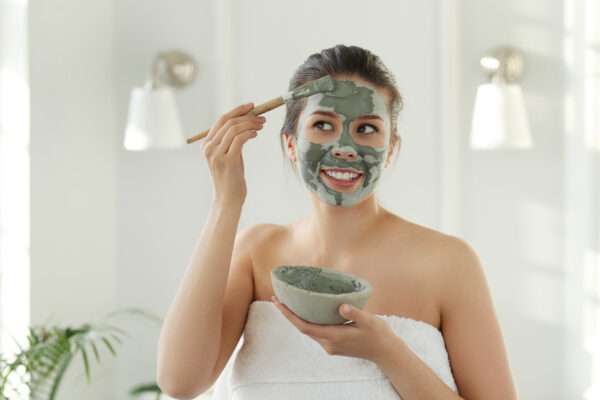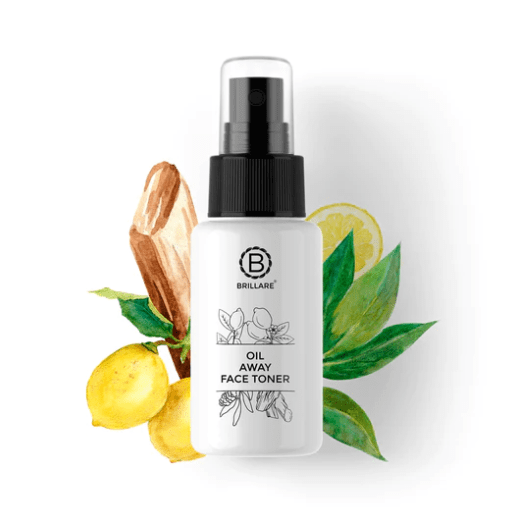
Instagram filters and photo editing apps are like a godsend if you have open pores on your skin. These enlarged pores can make it seem like you have tiny craters on your face but at the end of the day, filters do not deal with the underlying problem. This is when you might scour the internet for open pore treatments for your face. Before you jump into how to minimise the appearance of open pores, our experts have provided a small overview of what they are.
What are Open Pores?
Open pores are a common skin development and can affect people of all ages. The skin’s surface has small holes, called pores, that let sweat and oil pass through and leave the body. Pores can stretch and appear larger than usual when they are clogged with oil, dead skin cells, and other debris. As a result, you might experience blackheads and whiteheads on your nose, forehead, and cheeks, where open pores are most frequently found.
What are the Different Types of Pores
Pores come in different sizes and serve various purposes. Broadly categorised into two types – sweat pores and oil pores – these microscopic openings on the skin’s surface have distinct characteristics.
- Sweat Pores: Responsible for regulating body temperature, sweat pores release perspiration to cool the skin. They are smaller in size and are found all over the body.
- Oil Pores: Also known as hair follicles, oil pores are larger and contain sebaceous glands that produce sebum. Sebum is an oily substance that moisturises and protects the skin.
What Causes Open Pores?
Open pores can be frustrating if you’re longing for porcelain skin and understanding what causes them is an important step to managing and preventing them. Here are some of the most common causes of open pores:
- Genetics
- Hormonal changes
- Poor skincare habits and unsuitable products
- Overexposure to the sun
- Excess sebum production
- Reduced skin elasticity
Treatments for Open Pores
1. Microneedling with Dermapen
Dermapen microneedling is a highly advanced treatment that can effectively treat skin concerns such as visible signs of ageing, open pores, pigmentation, stretch marks, and acne scars. This treatment rejuvenates the skin and promotes natural collagen production in the skin to restore radiance and a youthful look.
2. Profhilo
Profhilo is an injectable treatment made up of hyaluronic acid that helps keep the skin hydrated and plump. The treatment is designed to stimulate the production of collagen and elastin in the skin, which can help to improve skin texture, elasticity, and overall appearance.
3. Volite
Volite is a non-invasive anti-ageing treatment that uses a skin-conditioning gel with Hyaluronic Acid. Injected into the skin layers, it nourishes from within, providing lasting skin enhancement for over 6 months. The Hyaluronic Acid absorbs moisture, resulting in a plump, healthy, and radiant appearance, while also stimulating collagen formation to improve elasticity and reduce fine lines and wrinkles.
How to Reduce Open Pores?
There is no treatment for open pores or methods that can permanently close facial pores, however, there are certain things you can do which will help minimise the appearance of open pores.
1.Cleanse your face regularly
Keeping your skin clean is essential for preventing clogged pores, which can contribute to the appearance of open pores. Use a gentle cleanser twice a day to remove dirt, oil, and makeup.
2.Exfoliate regularly
Exfoliating helps remove dead skin cells, which can clog pores and make them appear larger. Use a gentle exfoliating scrub or a product containing alpha-hydroxy acids 1–2 times per week.
3.Use a toner
Toners can help remove excess oil and debris from the skin and help to tighten pores. Look for toners containing sandalwood and tea tree oil, which can help to reduce inflammation and pore size. Brillare Oil Away Face Toner is formulated with tea tree oil, lemon and sandalwood and provides all-day oil control for clear and hydrated skin.

4. Use a mask
Applying a mask once a week can work like a facial for open pores which will provide deep cleansing and help unclog pores. Look for masks that contain charcoal or clay which are known for their pore-cleansing properties.
5.Protect your skin from the sun
Sun damage can lead to the development of open pores, so it’s important to protect your skin with broad-spectrum sunscreen. Look for a non-comedogenic formula to avoid clogging pores, and reapply every two hours before stepping outdoors. UV SKRIN Sunscreen is an effective gel-based and non-comedogenic sunscreen with SPF 50 which helps prevent tanning and sunburn.
6.Microneedling with Dermapen
Dermapen microneedling is a highly advanced treatment that can effectively treat skin concerns such as visible signs of ageing, open pores, pigmentation, stretch marks, and acne scars. This treatment rejuvenates the skin and promotes natural collagen production in the skin to restore radiance and a youthful look.
View this post on Instagram
7.Profhilo
Profhilo is an injectable treatment made up of hyaluronic acid that helps keep the skin hydrated and plump. The treatment is designed to stimulate the production of collagen and elastin in the skin, which can help to improve skin texture, elasticity, and overall appearance.
Tips to Reduce the Appearance of Open Pores
While it’s commonly believed that you can shrink pores, they don’t actually change size. Instead, certain practices can help minimise their appearance and prevent them from becoming enlarged.
1. Ice Cubes Massage
Gently massage your face with ice cubes wrapped in a soft cloth. The cold temperature can temporarily tighten the skin and reduce the appearance of enlarged pores.
2. Facial Exercises
Engage in facial exercises to promote muscle tone. Facial yoga or exercises may help tighten the skin and reduce the appearance of sagging, which can contribute to larger pores.
3. Silk Pillowcases
Sleep on silk pillowcases. Unlike cotton, silk causes less friction against the skin, reducing the likelihood of irritation and clogged pores.
4. Avoiding Harsh Products
Be cautious with skincare products that contain harsh ingredients, as they can irritate the skin and exacerbate pore issues. Avoid using abrasive scrubs, as they can damage the skin barrier.
5. Non-Comedogenic Makeup
Opt for non-comedogenic and oil-free makeup products to avoid clogging pores. Look for products labelled as suitable for sensitive or acne-prone skin.
6. Avoid Picking Pimples
Resist the temptation to pick pimples as they can cause inflammation, increase the risk of scarring, and prolong the healing process.
Takeaway
There are several effective treatments for open pores on your face like exfoliation, face masks and suitable skincare products. As long as you start your day with sunscreen and end your day with a face wash, you’ll be on the right track to maintaining healthy skin. Consult a skincare professional at Bodycraft Clinic & Spa if you’re looking for an open pores treatment by a dermatologist.
FAQs around Open Pores Treatment
1. Can open pores be cured completely?
There is no way to close your pores completely, however, there are ways to make them look less prominent on your skin.
2. Does applying ice to your face close your pores?
Yes, ice has the ability to minimise the appearance of open pores because of its skin-tightening effect, but only for a very short time.
3. Do pores start opening with age?
Your skin loses elasticity as you age, causing it to stretch and giving the appearance of open pores. Additionally, your skin becomes thicker, which causes tiny skin cells to gather around your pores and give them a larger appearance.
4. Does sunscreen clog pores?
If you have open pores, it’s best to avoid sunscreen that contains any oils which can clog pores. Opt for non-comedogenic sunscreens which are designed to prevent your pores from getting clogged.
5. Which is the best treatment for open pores on the face?
Some of the best treatments for open pores on your face are Microneedling with Dermapen and Profhilo. Get in touch with our team at Bodycraft to understand more about your treatment options.
6. Which food is good for open pores?
A healthy diet can contribute to overall skin health. Consider including foods rich in:
- Antioxidants: Found in fruits and vegetables, they can help protect the skin.
- Vitamins A, C, and E: Found in various fruits and vegetables, they support skin health.
- Omega-3 fatty acids: Found in fish, flaxseeds, and walnuts, they can contribute to skin elasticity.
- Zinc: Found in nuts, seeds, and whole grains, it supports wound healing and skin health.
7. At what age do pores enlarge?
Pores can appear larger during adolescence due to increased oil production and hormonal changes. However, ageing can also contribute to enlarged pores as the skin loses elasticity and collagen. Factors like sun damage and genetics also play a role.
8. What is a normal skin pore size?
Pore size varies among individuals, but on average, pores are not visible to the naked eye. Factors like genetics, skin type, and age influence pore size. Typically, the pore size may increase with age and sun damage, leading to the appearance of larger pores. Regular skin care and protection from sun damage can help maintain skin health and minimise the visibility of pores.